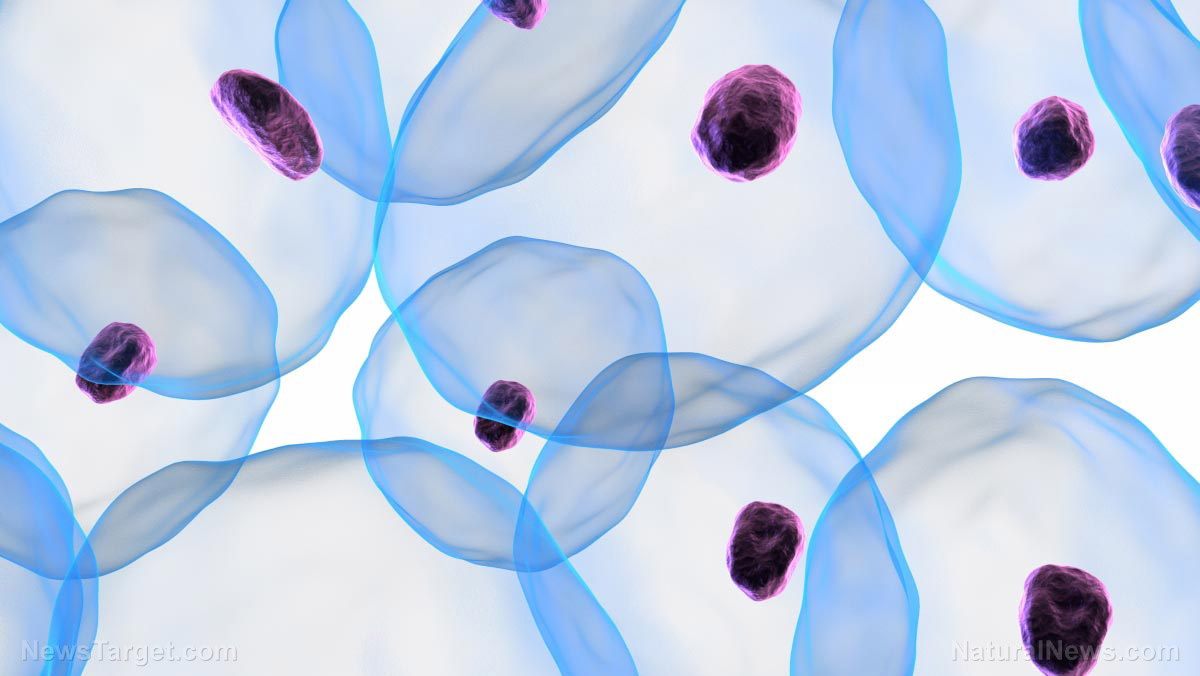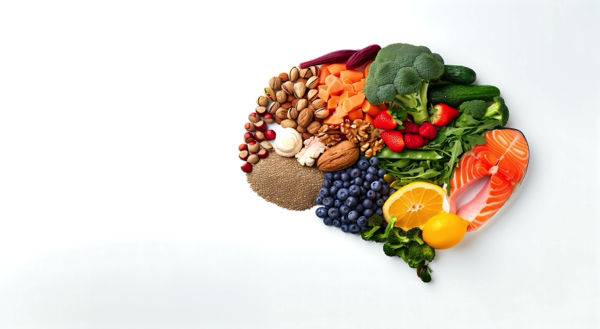Optimal protein intake could be the missing link in keeping your brain sharp
08/14/2025 / By Willow Tohi

- Protein plays a critical role in neurotransmitter production, nerve cell repair and brain health, influencing mood, memory and cognitive decline.
- Chronic low protein intake is linked to impaired brain function, including symptoms like brain fog, depression and myelin sheath deterioration.
- Plant-based proteins require careful planning to ensure all essential amino acids are consumed, while animal proteins offer higher bioavailability.
- Optimal protein intake varies with age, activity level and health status, often exceeding standard dietary guidelines.
- Studies suggest dietary adjustments focusing on protein can reduce Alzheimer’s risk and support neurological recovery.
When Colin Cooper, a 45-year-old neuroscientist, began experiencing brain fog and fatigue in his 30s, he initially dismissed it as stress. But years later, he discovered that subclinical protein deficiency was behind his symptoms, highlighting a growing but underappreciated truth: protein is vital for brain health. Research now shows that protein isn’t just muscle fuel—it’s a cornerstone of nerve function, neurotransmitter production and myelin sheath integrity. As life expectancy rises but cognitive decline worsens, scientists are urging a renewed focus on dietary protein to combat neurological risks.
“Protein gaps can manifest as mood swings, memory lapses and nerve dysfunction long before anyone suspects a deficiency,” said Dr. Timothy Frie, founder of the National Academy of Neuronutrition.
Neurotransmitters: The direct link between protein and brain function
Protein breaks down into amino acids, which act as the raw material for neurotransmitters like serotonin, dopamine and norepinephrine. These chemicals govern everything from motivation to stress resilience. For example, tryptophan—a protein-derived amino acid—fuels serotonin, regulating mood and sleep, while tyrosine boosts dopamine, enhancing focus.
A 2022 study in Alzheimer’s & Dementia found that individuals with abundant “plasticity-linked” proteins in their brains delayed early Alzheimer’s symptoms. Low protein intake, however, undermines this process. “Without adequate amino acids, brain cells can’t communicate efficiently, leading to executive dysfunction,” said Kacy Shea, a functional nutrition practitioner.
Structural support: Proteins shield nerve cells over a lifetime
Protein fortifies neurons physically, particularly the myelin sheath—the fatty tissue insulating nerve fibers. Aging or poor nutrition can degrade this sheath, causing nerve-related issues like numbness or cognitive delays.
“Even in developed nations, diets lacking protein can erode myelin integrity,” Frie noted. Key amino acids like serine and glycine help rebuild this protective layer, mitigating risks for conditions like multiple sclerosis or post-concussion syndrome.
The plant vs. animal protein debate for cognitive health
While both sources provide protein, digestion efficiency differs. Animal protein delivers essential amino acids more reliably, whereas plant-based eaters must combine sources (e.g., legumes with grains) to achieve completeness. Studies like the Nurses’ Health Study reveal plant proteins may offer greater cognitive protection than animal sources when substituted, but they require strategic pairing.
“The answer isn’t choosing sides,” explained Shea. “It’s ensuring sufficient intake through varied, whole-food sources regardless of dietary preferences.”
Aging and disease: Protein’s protective promise
As populations age, muscle loss (sarcopenia) and cognitive decline accelerate. Experts recommend 1.2–2.0g of protein per kilogram of body weight for adults, rising with age or health challenges. For instance, post-concussion patients may need up to 2.5g/kg to repair neurons.
“Increasing protein at every meal restored my cognitive clarity and energy,” Cooper said, now advocating for balanced intake. Research also ties high plant protein to reduced Alzheimer’s risk, with one study noting a 63% lower depression risk in adult consumers of dairy-based protein.
The plate is the first line of defense
The evidence is clear: protein isn’t just about physical strength—it’s foundational for lifelong brain health. From neurotransmitter synthesis to myelin repair, adequate intake could be a low-cost, practical strategy to counter neurological risks.
“For the first time, we have science that transforms the way we think about what we eat—not just for survival, but for neural vitality,” Frie said. As Cooper’s story demonstrates, recognizing and addressing protein gaps could mean the difference between a sharp mind or one vulnerable to disease.
Sources for this article include:
GeorgiaChiropracticNeurologyCenter.com
Submit a correction >>
Tagged Under:
aging secrets, beat depression, brain function, brain health, Censored Science, Cures, longevity, memory, mind body science, muscle, natural remedies, nervous system, nutrients, protein
This article may contain statements that reflect the opinion of the author




















